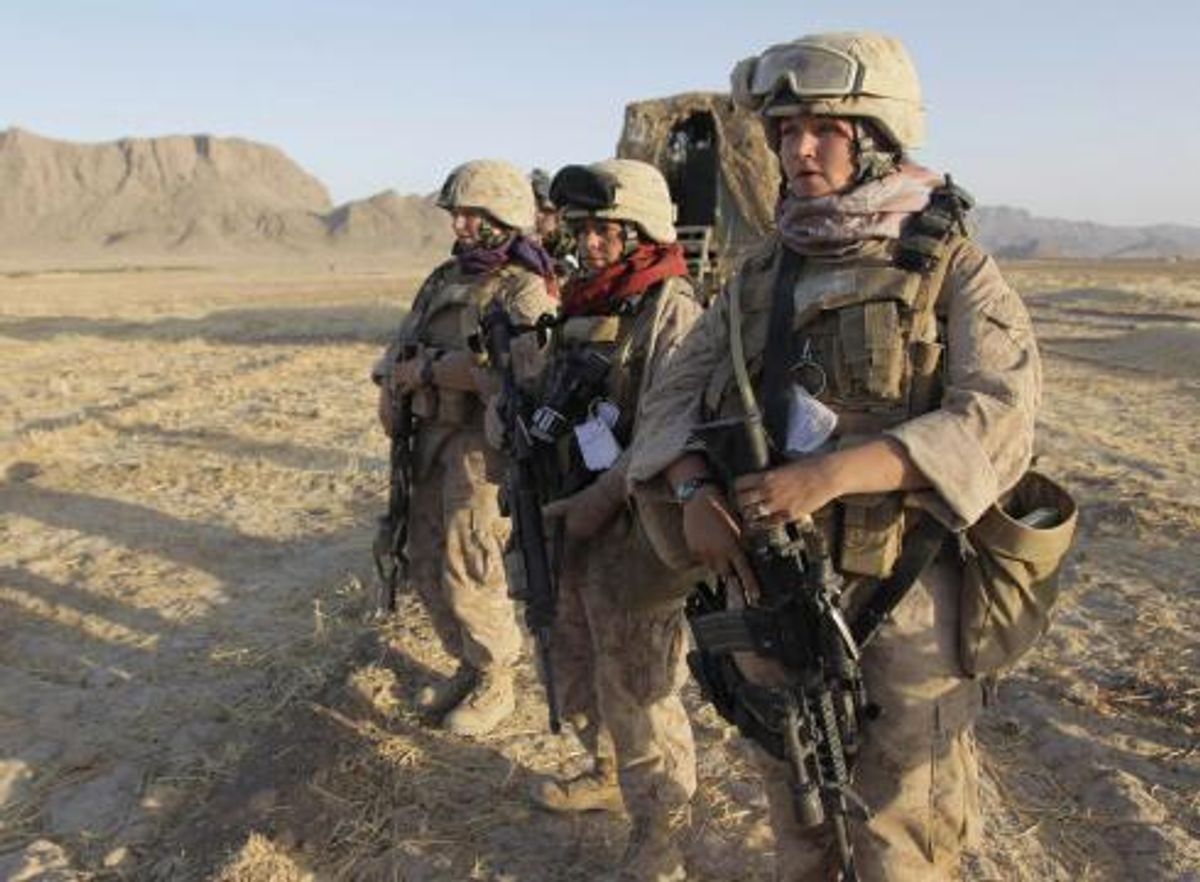The Pentagon officially lifted the ban on women in combat in January, but the U.S. Special Operations Command has yet to commit to opening 15,497 jobs in the elite forces to women because they are afraid that these highly trained females might cause men to want to do the sexing with them.
"We haven't made any decisions, whatsoever ... There's concerns [about unit cohesion among the rank-and-file]. And we all share those concerns," Maj. Gen. Bennet Sacolick, director of force management and development for Special Ops, told NBC News.
Jack Murphy, a former Airborne Ranger and Special Forces sergeant, articulated these "concerns" a little more bluntly: "It can shift the focus of doing the job if everybody’s trying to get laid. I know it sounds incredibly juvenile, but it’s incredibly true." Murphy went on to explain that women in elite combat positions will "make the entire team useless" because their presence will cause "so much drama."
Brandon Webb, a former Navy SEAL, added: "How do you practically expect men and women not to have sex together under extreme stress, a half a world away from America -- and how does that affect unit effectiveness?"
Valid points, all. How do we expect men and women not to "have sex together" under these circumstances? Hard to say, but let's start with an account of Navy SEAL training ("a brutal regimen renowned for breaking everyone but the very best of the military's elite warriors") from the New York Daily News:
"They get most of the quitters out first, and then they teach you how to be a SEAL," said Stew Smith, 42, who served as a SEAL from 1991-99.
The SEAL training course -- known as Basic Underwater Demolition School -- is held at the Naval Special Warfare training center in Coronado, Calif. For six months, aspiring SEALs are forced to crawl through mud for hours, tie brutally complicated knots under water and endure hypothermia and sleep deprivation. Roughly 70% of recruits drop out in the first few weeks of training...
"You run, you paddle boats, carry boats -- it never stops," Smith said. "You're wet, sandy and tired -- and you don't sleep..."
"If you can make it through, you will never quit at anything else again," Smith said.
Surely, anyone who could endure that kind of training would just as easily jeopardize their careers, their mission and the safety of their unit for a little romp in the dirt, right?
Weirdly, women who have served in elite roles in the military disagree with that premise.
"As a female Marine, for example, you have to be more than professional because you're going into that situation where there’s already public opinion against how you behave and how you will perform," Colleen Farrell, a captain in the U.S. Marine Corps Reserves who oversaw about 20 female troops attached to infantry and Special Operations units in Afghanistan during 2010 and 2011, told NBC.
"The female Marines I worked with were the most professional Marines I ever led in my career. When you have elite teams where the level of discipline is just so high, I really don’t think that’s going to be a problem," Farrell added. "Those Special Operations soldiers and Marines who are over there, they are there for the mission. They’re not in Afghanistan to get married."
Women like Farrell are concerned that hesitation from Special Ops -- and a recently commissioned RAND Corp. survey on possible "social ripples of placing women in those [elite combat] jobs" -- may keep them from getting the opportunity to serve.
But fears about female service members being a threat to unit cohesion are unfounded, and echo previous arguments used against racially integrating the military and allowing gay men and women to serve openly, Farrell says, "and we’ve seen that both of those [concerns] have been disproven."
Though plenty of highly trained female service members and others disagree with Murphy and Webb's juvenile fears about sexual tension, they do have an ally in famed intellectual and global authority on gender relations Ali G (starts at 2:43):

Shares